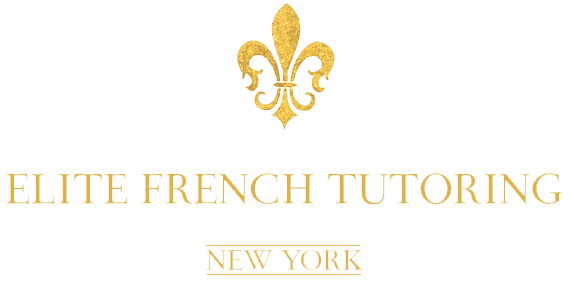Traditional French language schools can be expensive and don’t work very well. French conversation practice with host families provides a more affordable and intensive way to become skilled at the language.
Hundreds of registered French-speaking host families across France welcome language learners into their homes. Their programs offer much more than just accommodation.
Students get constant language exposure through family meals, social activities, and everyday conversations. The immersive environment makes it substantially harder to fall back on your native language.
The real story of living with a French host family includes challenges and opportunities that you won’t see in promotional materials. This piece shows how simple household routines and even uncomfortable situations become valuable learning moments. These experiences are a great way to get progress in your French language trip.
Table of Contents
ToggleThe Hidden Reality of French Host Family Programs
I’ve found that living with a French host family isn’t as simple as program materials make it seem. Host families of all types, from single parents to empty nesters, give students unique ways to dive into French culture.
What marketing materials don’t tell you
Marketing materials paint a perfect picture, but real growth happens through everyday challenges. Host families often use English to make things easier. This limits your chances to practice French naturally. Students don’t deal very well with cultural differences, especially when you have different meal schedules and social expectations.
Common misconceptions about immersion learning
Here are some myths about French immersion programs that need to be cleared up:
● Moving to France will make you fluent
● Only young learners can succeed in immersion
● Host families give you language practice all day
● Cultural adjustment happens by itself
All the same, studies show that students with different learning needs can thrive in immersion programs with the right support.
Setting realistic progress expectations
My experience taught me that real progress comes from active participation. Research shows that students face challenges with reading speed, accuracy, and understanding at first. On top of that, I learned that everyone develops language skills at their own pace.
French immersion programs can set the bar too high. Students should focus on the whole cultural exchange instead of just learning the language. Studies show that casual chats during shared meals give you insights that you can’t get in any classroom.
Strategic Approaches to Daily French Practice
My experience shows that effective French conversation practice needs good planning and daily dedication. Time spent with host families in France taught me that 15 minutes of daily French activity can create amazing results.
Creating natural conversation opportunities
Living with French host families helped me find that there was a better way to practice. Setting one day as ‘French day’ each week creates natural speaking opportunities. Here are some simple conversation starters that work well:
● Writing shopping lists in French
● Keeping a French journal
● Labeling household items with French words
● Cross-practicing new terms in a vocabulary notebook
Using household routines for language practice
Household chores offer great chances to expand French vocabulary. Simple tasks like “nettoyer la cuisine” (cleaning the kitchen) or “faire la vaisselle” (doing the dishes) turn into mini-language lessons naturally.
Turning awkward moments into learning experiences
Pronunciation mistakes and cultural misunderstandings lead to awkward moments sometimes. Yet I found that there was value in persistence—even pronunciation challenges can lead to breakthroughs. Students should embrace these difficult situations as chances to learn instead of avoiding them.
Reality shows that comfort zones don’t expand your vocabulary. Students need to push through their original discomfort. Regular French practice during daily activities helps build natural pronunciation patterns.
My host family experience showed that successful learners stick to French no matter what. These students keep responding in French even when others try practicing their English. This dedication creates more authentic learning opportunities.
Maximizing Learning Outside Formal Lessons
My time with French host families showed that successful programs make every moment count. This led me to develop strategies that work to maximize learning opportunities beyond formal lessons.
Leveraging family activities for practice
Students can learn French best through cooking adventures. They prepare French recipes with their host families and discuss ingredients in French. Local park scavenger hunts help them practice direction-following skills while they explore outdoors.
Using media and entertainment effectively
French media provides rich learning opportunities. Here are my top recommendations:
● Watch French TV shows with French subtitles
● Listen to French radio stations like RFI
● Follow French social media influencers
● Use language learning apps like Duolingo
Building vocabulary through daily tasks
Without doubt, students learn vocabulary best through everyday activities. A nature journal in French helps document outdoor observations. Daily activities create a natural learning environment.
| Activity | Learning Focus |
| Morning routines | Simple verbs and time expressions |
| Household chores | Common object names |
| Family meals | Food vocabulary and social phrases |
| Evening activities | Entertainment and leisure terms |
Students can scan QR codes on flashcards to hear native pronunciations. These methods help them merge French naturally into their daily lives while staying with host families.
Measuring Real Progress Beyond Textbooks
My work with French host family programs has shown me that we need to look beyond traditional test scores to measure progress.
Tracking conversation confidence
We assessed our students’ progress by watching how well they handle natural conversations. Research shows French immersion graduates often struggle with confidence in their language skills. Here’s the simple progress tracking system I created:
| Confidence Indicator | Measurement Method |
| Response Speed | Time taken to form replies |
| Vocabulary Range | Topics discussed confidently |
| Error Recovery | Knowing how to self-correct |
| Cultural References | Natural use of idioms |
Monitoring cultural understanding growth
Of course, cultural literacy grows with language skills. Students’ cultural growth shows through these indicators:
● Understanding of regional expressions
● Appropriate use of formal/informal speech
● Recognition of cultural references
● Integration of French customs in daily life
Recognizing non-verbal communication improvements
Non-verbal communication marks the most important progress in French fluency, yet people often overlook it. Research shows French communication depends heavily on facial expressions and specific gestures. I watch how students adapt their body language and maintain proper eye contact during conversations.
You learn French gestures quickly, like the raised eyebrow that shows skepticism. The French communication style tends to be more direct. Students who pick up these non-verbal cues double their effectiveness in communication.
French language assessment has moved beyond traditional testing. Modern evaluation looks at real-life situations and spontaneous language use. Through my host family program, I see how students naturally blend these elements into their daily interactions. This creates a more authentic way to measure progress.
Conclusion
Staying with a French host family turns language learning into a real-life experience instead of just classroom work. Students make amazing progress through daily talks, family meals, and cultural immersion that no book could ever teach.
Students who don’t mind awkward moments and work through their original discomfort learn the fastest. They improve by a lot when they stick to French conversations, even with easier options available. This builds true fluency quicker than standard teaching methods.
Learning goes way beyond memorizing words and grammar rules. Successful learners develop a natural feel for French culture. They pick up body language cues and adjust their speaking style to match native speakers naturally.
Host families are a great way to get better at French quickly while building lasting friendships. Yes, there are challenges, especially when you have to adjust at first. But the genuine learning environment brings benefits that are nowhere near the small hurdles you might face.
Your success with the language depends on how much you participate and step out of your comfort zone. Begin each day ready to learn something new. Take every chat as a lesson, and you’ll see your French skills grow in ways you never thought possible.
FAQs
How effective are French host family programs for language learning?
French host family programs can be highly effective for language learning, offering immersive experiences that go beyond traditional classroom settings. They provide constant exposure to the language through daily interactions, shared meals, and cultural activities, which can significantly accelerate language acquisition and cultural understanding.
What are some common challenges faced during a French host family stay?
Common challenges include initial communication difficulties, cultural misunderstandings, adjusting to different meal times and social expectations, and the temptation to revert to English. However, these challenges often become valuable learning opportunities that contribute to overall language progress and cultural adaptation.
How can I maximize my French learning outside of formal lessons?
To maximize learning, engage in daily activities with your host family, such as cooking, watching French TV shows with subtitles, listening to French radio, and participating in family outings. Keep a French journal, label household items in French, and use language learning apps to supplement your immersion experience.
What are realistic expectations for language progress during a host family stay?
Progress varies by individual, but you can expect improvements in conversation confidence, cultural understanding, and non-verbal communication skills. Realistic goals include increased vocabulary, better pronunciation, and the ability to engage in everyday conversations. Remember that fluency takes time and consistent effort.





